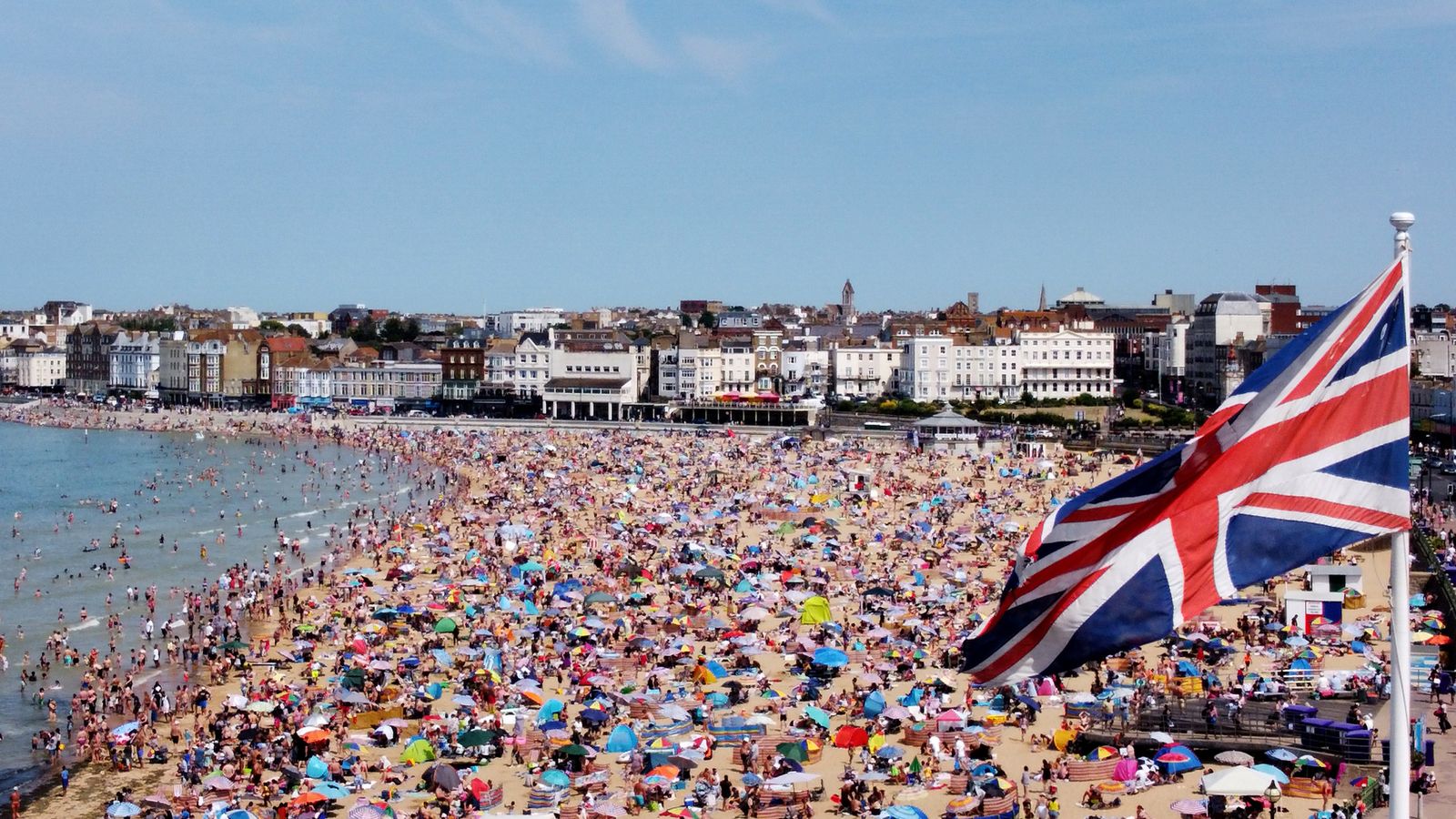2022 will be the warmest year on record in the UK, according to provisional figures from the Met Office.
It is a year which saw temperatures reach their highest ever in the country, with the mercury reaching 40.3C (104.5F) in Lincolnshire on 19 July.
The average temperature for the year is on track to beat the previous all-time high of 9.88C (49.78F)set in 2014, provisional data shows.
The exact figure will be confirmed in the new year.
The Met Office has said the 10 years recording the highest annual temperature since 1884 have all been since 2002.
All four seasons this year were in the top 10 warmest on record for the UK, the Met Office said.
Winter was eighth warmest, spring the fifth, summer the fourth and autumn the third.
Dr Mark McCarthy, head of the Met Office’s National Climate Information Centre, said: “2022 is going to be the warmest year on record for the UK. While many will remember the summer’s extreme heat, what has been noteworthy this year has been the relatively consistent heat through the year, with every month except December being warmer than average.
“The warm year is in line with the genuine impacts we expect as a result of human-induced climate change. Although it doesn’t mean every year will be the warmest on record, climate change continues to increase the chances of increasingly warm years over the coming decades.”
Dr McCarthy also said the record-breaking temperatures in July boosted the overall temperature values for the year but this isn’t the “fully story”.
He continued: “Temperatures have been above the 1991 to 2020 long term average for a large proportion of the year, and this is something that we can anticipate as we become increasingly affected by climate change.
“Met Office science has shown that the temperatures witnessed in mid-July would have been extremely unlikely in the pre-industrial period – the era before humanity started emitting lots of greenhouse gases from burning fossil fuels.”
Please use Chrome browser for a more accessible video player
Dr McCarthy added that December’s weather show the UK’s climate is still “subject to notable cold spells during the winter season”.
He added: “Our observational data show these have generally become less frequent and less severe as our climate warms.”
A sequence of heatwaves starting in June led to the UK experiencing its fourth warmest summer on record, while temperatures broke the 40C (104f) mark for the first time.
The hot spell in July saw the Met Office issue its first ever red warning for extreme heat.
A major incident was declared by the London Fire Brigade after a “huge surge” in blazes across the capital in July.
In the village of Wennington on the outskirts of east London, several houses were destroyed and others were severely damaged after grass fires broke out, engulfing properties, as black smoke billowed into the air.
Wales also recorded a new daily maximum temperature record of 37.1C (98.8F), while Scotland saw a new record of 34.8C (94.6F).








